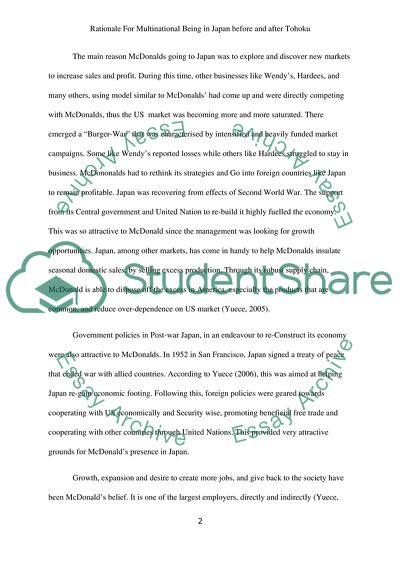Cite this document
(The Rationale for McDonalds to be in Japan before and after Tohoku Essay, n.d.)
The Rationale for McDonalds to be in Japan before and after Tohoku Essay. Retrieved from https://studentshare.org/finance-accounting/1789203-international-finance
The Rationale for McDonalds to be in Japan before and after Tohoku Essay. Retrieved from https://studentshare.org/finance-accounting/1789203-international-finance
(The Rationale for McDonalds to Be in Japan before and After Tohoku Essay)
The Rationale for McDonalds to Be in Japan before and After Tohoku Essay. https://studentshare.org/finance-accounting/1789203-international-finance.
The Rationale for McDonalds to Be in Japan before and After Tohoku Essay. https://studentshare.org/finance-accounting/1789203-international-finance.
“The Rationale for McDonalds to Be in Japan before and After Tohoku Essay”, n.d. https://studentshare.org/finance-accounting/1789203-international-finance.


